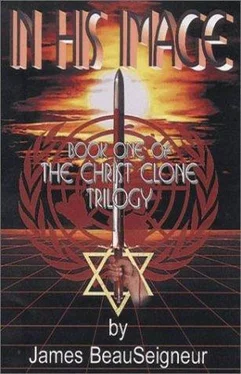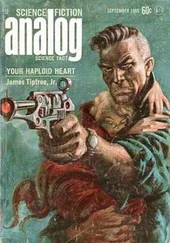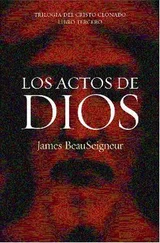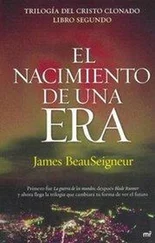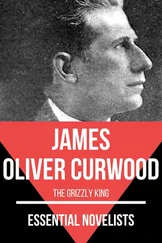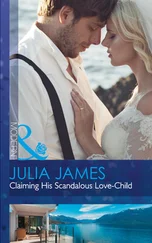In the examination room, it took the ophthalmologist only one quick look in each eye to make his diagnosis. "I'm sorry, Mr. Donafin. The damage to your cornea is very severe. The scarring from the shards of glass and the corneal burns have formed a nearly opaque cover over about ninety percent of your crystalline lens, and the rest isn't much better. As bad as it is, I'm surprised you still have any light perception at all. Ordinarily we might consider corneal transplants, but in this case, with the ancillary burn damage to the retinas, I think we'd only be causing additional suffering with no real hope of improvement in your sight."
It was all so quick. So quick and so final. In those few short words, stated with such stark clinical coldness, the doctor had pronounced him permanently blind.
"If you'll lean back, I'll put some fluorescein in your eyes so we can locate the glass that's still bothering you," the doctor said. When he finished, the doctor put an antibiotic ointment in Tom's eyes and reapplied pressure bandages to keep the lids from moving. "Now, leave that on and come back tomorrow so we can see how you're doing. Dr. Felsberg," he continued, now addressing Rhoda, "will you be bringing Mr. Donafin back in tomorrow?"
Rhoda nodded, and then stated her intention verbally for Tom's benefit.
"If you'll let Betty know on your way out, she'll try to schedule a time convenient with your schedule."
"Thank you," she said, in response to the professional courtesy.
"Oh, and ask her to give you some pamphlets about learning to live with blindness."
Tom knew that it was entirely normal for doctors to carry on conversations as if their patients were nowhere within earshot, but right now what he knew made little difference. What he felt, there in the blackness that he had just learned would be his permanent home, was that he was being talked about and not to. It was as if he weren't a real person anymore because he was blind. He knew it was just the beginning. He had known blind people over the years. He knew how they were obliged by their blindness to always wait for the conversation of others. Even in a crowded room he had seen blind people forced to stand silently until someone spoke to them. The day before, Tom had joked about it, but now the reality of the end of his career as a photographer hit him full force.
In the car Tom was silent as Rhoda got in the other side. "How are you doing?" she asked sympathetically, as she put her hand on his.
"Not very well," he answered. "And what's worse, I don't think the whole thing has really hit me yet. I keep thinking that I'll just get these bandages off and I'll be able to see again."
"Well," she began as she caressed his hand to comfort him, but then she couldn't think of anything else to say.
Tom turned his hand to hold hers; he needed all the support he could get right now. "I have no idea what to do from here," he said. "I can't work. I have some savings and three years of back pay coming from News World that'll last me for a while, but then what?" He felt like saying something cliché like "I'd be better off dead," but the warmth of Rhoda's hand told him that wasn't true.
"Tom, I know you're feeling angry right now, and cheated, but there are things in life which we must simply accept, because even if we don't they remain the same." She sounded as though she was speaking from experience.
They sat for another few minutes in silence holding each other's hands. "Tom," Rhoda said finally, "there's someone I want you to meet."
Tom thought he knew who she was talking about. "Your rabbi?" he asked.
"You'll really like him," she said, confirming Tom's question. "He asked me to bring you by when you were back on your feet."
"Yeah, I guess it's about time I thanked him for digging me out and bringing me to you." Reluctantly, Tom let Rhoda's hand slip free so she could drive.
Plowshares into Swords
Two months later – Tel Aviv
Scott Rosen sat in a small cafe eating a bowl of soup, waiting for his friend Joel Felsberg. Soon Joel entered and sat down without speaking.
"You look upset," Scott offered, in what seemed to Joel to be a rather irritating tone.
"I hate these damned Russians – always stopping you on the street and wanting to see your papers." Joel was exaggerating: most people went days without being stopped. "They're never going to leave, you know."
"Yeah, I know," Scott answered with uncharacteristic resignation, as he sipped his soup. "But everything is not so gloomy," he added, with equally uncharacteristic good cheer. "I heard the resistance hijacked a supply truck, stole all the supplies, and then loaded it with dynamite and sent it into a Russian camp by remote control. They say it killed nearly a thousand Russians."
Joel ordered his lunch before responding. "I've heard that story twenty times in the last three weeks and it gets more full of bullshit with every telling," Joel responded.
"You don't believe it?"
"Yeah, I believe it. But I believe it the way I heard it the first time: the resistance hijacked a truck and drove it into a Russian camp where it ran into a water tower, accomplishing next to nothing."
"Well, at least there is a resistance."
"Yeah, and they're out-gunned and completely disorganized. If Ben Gurion had used their tactics we'd still be a British protectorate! Damn it, Scott," Joel continued, after stirring his coffee, "we're still occupied! I don't care how many water towers we run into or supply trucks we hijack! We were a free, independent state and now we are not!"
"What do you think the resistance should do differently?" Scott asked, as if Joel's opinion made a difference.
"Hell, I don't know." Joel shook his head. "Nothing I guess. That's the whole problem: there's nothing we can do. Even if we got rid of the Russians, as soon as they were gone we'd be attacked by the Arabs, and we'd have nothing to fight them with."
"Yes, but… "
"Damn it, Scott, you're pissin' me off. Is that why you brought me here: so I could wallow in my anger and frustration?"
Joel Felsberg and Scott Rosen were zealous in their love for their country. Either could easily be brought to a fever pitch when it came to Israel, but strangely, on this occasion only Joel's blood pressure had risen. An unusual calm accompanied Scott's speech, but Joel didn't notice it. Neither had he noticed that since his arrival no one had entered or left the cafe, nor that the cafe owner had turned the sign to read 'CLOSED.' Likewise, the two men standing watch outside the cafe had escaped Joel's notice entirely.
Suddenly Scott became animated. "We must drive the Russians from Israel and bloody their noses so badly they'll never come back!" he said.
"Big talk. Big talk," Joel responded. "I suppose you think the resistance will accomplish that with their puny disruptions to the Russian supply lines. And just how do you propose we deal with the Arabs when and if the Russians leave?"
Scott studied his soup. "If only we had used our nukes on the Russians instead of just waving them around as a threat to the Libyans."
"You're a fool, Rosen! By the time we knew we were being invaded, the Russians were all over the place. The only way we could have nuked them was to launch on our own soil," Joel said, growing even more angry.
Scott Rosen did not allow his friend's anger to distract him. He had a mission to accomplish and all was working exactly according to plan. "Yeah, I guess that's true." Scott's voice seemed resigned to the hopelessness of the situation, but he continued. "Too bad we can't get control of the nukes now. With the Russians all concentrated in the hills, we could wipe out ninety percent of them with just a few well-placed missiles and the resistance could take out the other ten percent in the cities."
Читать дальше
